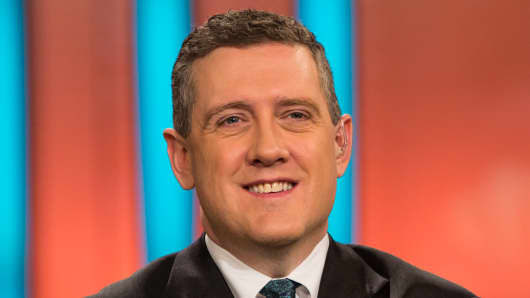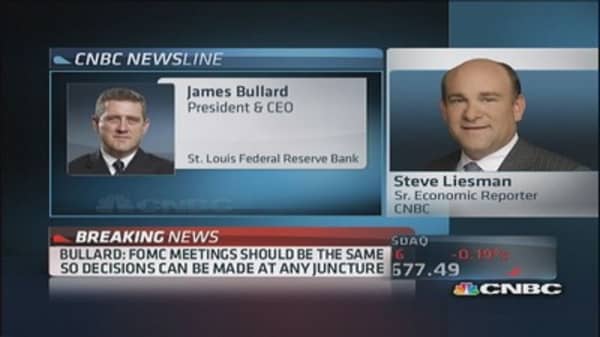The low U.S. inflation rate is a worrisome sign for the country's economy, and there is not much evidence it is heading higher, a senior U.S. Federal Reserve official said on Wednesday, adding that price pressures would be under scrutiny as policymakers weigh tapering monthly bond purchases.
"Inflation has been running very low. I have been concerned about low inflation," James Bullard, president of the St. Louis Fed, told a Rotary Club luncheon in Paducah, Kentucky. "There has not been much indication, so far, that it has been ticking back up toward target."
Inflation measured by the PCE price index, the Fed's preferred gauge, is around half the level of the U.S. central bank's 2 percent target. The Fed last month explicitly nodded to the risks that prolonged low price pressures would pose for the economy.
The Fed's policy-setting "committee has set a target. They've set it at 2 percent," Bullard said. "Once you've set it, you had better have some credibility that you are going to hit it."




